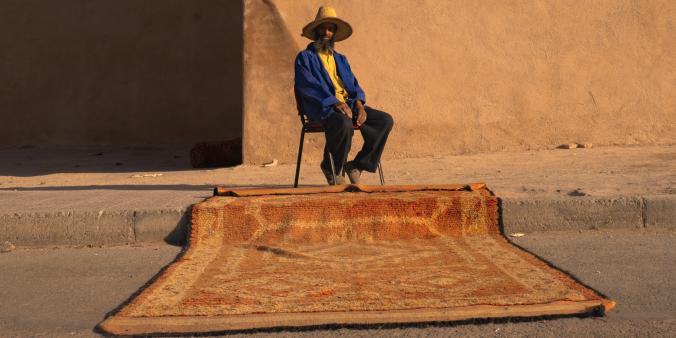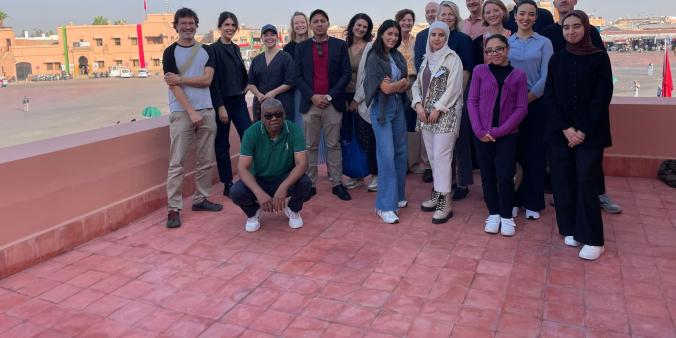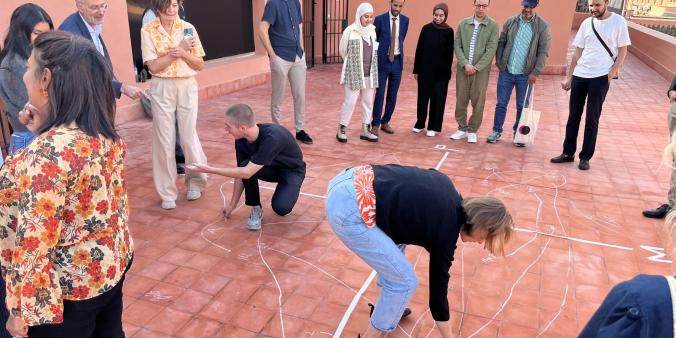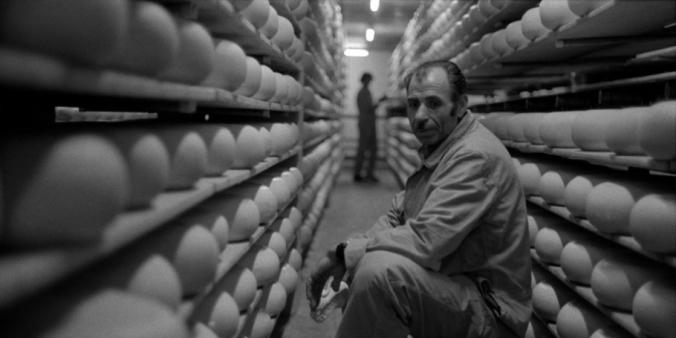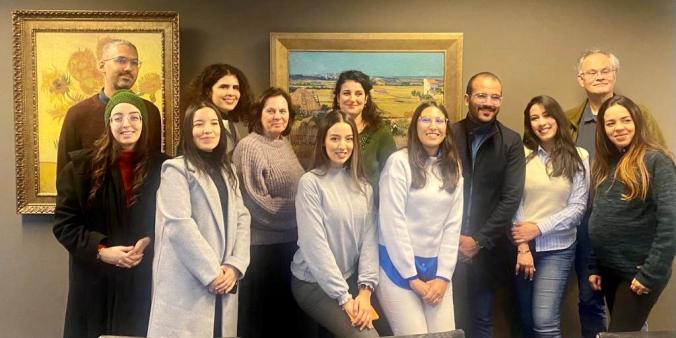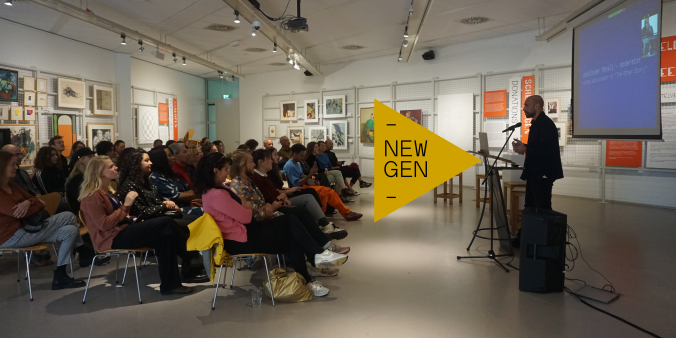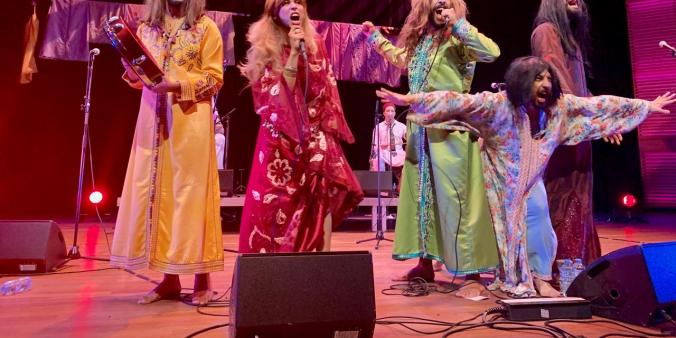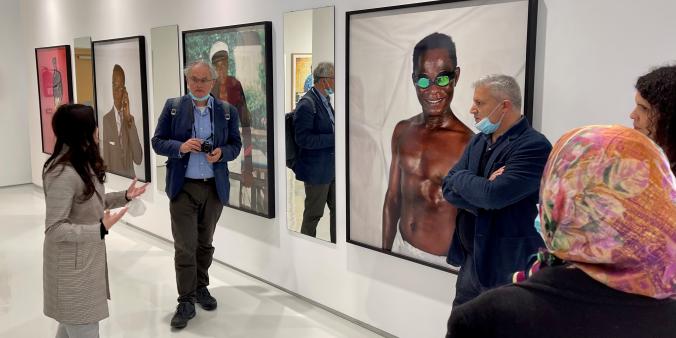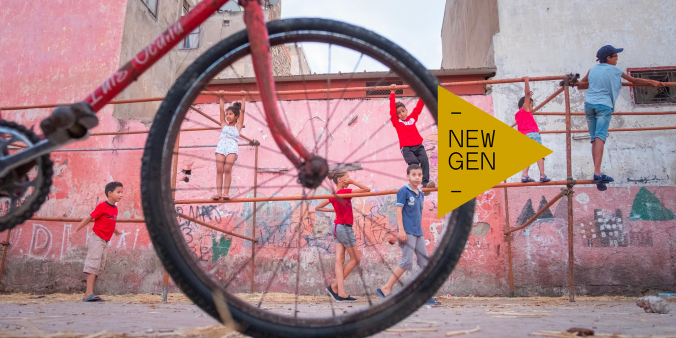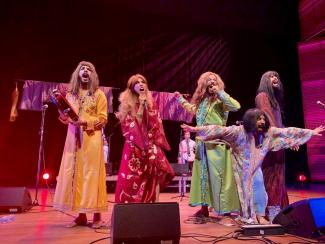
Looking Back: Cultivating Mutual Understanding and Trust
Over the past years, King Mohammed VI initiated a series of major ambitious projects at the national level to gain more international recognition for Morocco's cultural landscape. Rabat was designated City of Lights and Capital of Culture, with a 9 billion dirhams project including the opening of the Mohammed VI Museum of Modern and Contemporary Art, a National Library (BNRM), a Grand Theatre, as well as major urban developments. These projects have set the tone for artistic and cultural renewal in the country that already counts hundreds of festivals, including the renowned International Film Festival in Marrakech (FIFM), the International Dance Festival (On Marche) and the International African Contemporary Art Fair and numerous music festivals in all genres (Mawazine, Gnaoua, Timitar, Jazzablanca, L’boulevard, etc).
Morocco was included in the international cultural policy of the Netherlands for the first time in the policy period 2017-2020. Through cultural connections, the Netherlands wants to cultivate mutual understanding and trust with the countries surrounding Europe, especially Egypt, Turkey, Russia and Morocco. This resulted in several interesting programmes: The Next Generation (Prince Claus Fund), Creative Twinning (Netherlands Enterprise Agency), international visitors programmes (DutchCulture and Het Nieuwe Instituut) and Inclusive Cities & Societies through Design (Creative Industries Fund NL). Especially the last programme presented several very interesting collaborative projects involving Morocco and the Netherlands that demonstrated the potential of the visual art and design scene in Morocco.
In the cultural cooperation between the Netherlands and Morocco, several disciplines are well represented, such as performing arts, visual arts through museology and heritage and literary translations. The cooperation between literary institutions, such as the annual book fair Salon International de l’Edition et du Livre (SIEL) with Netherlands Institute Morocco (NIMAR) from Leiden University and the Dutch Foundation for Literature, is a great example of a durable and profound partnership between the Dutch and Moroccan literary worlds.
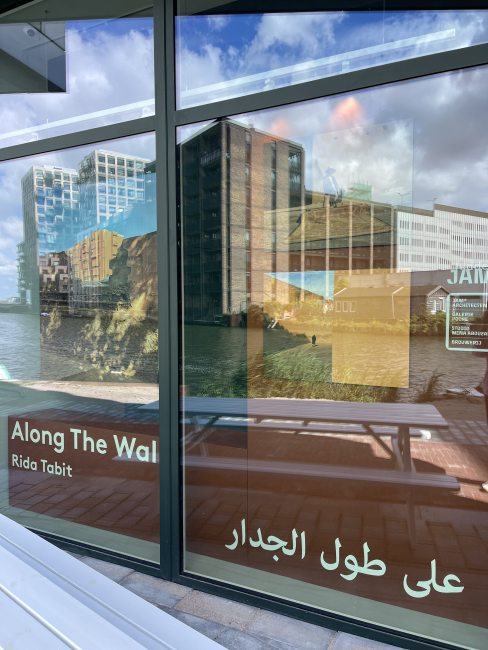
Looking Forward: Opening up Cultural Life for Diverse Audiences and Increasing Innovative Thinking
The Dutch national funds for culture include Morocco in their international policy and programmes. A Cultural Identification Mission was planned for March 2020, but this initiative of DutchCulture, led by the municipality of Amsterdam, the Dutch Ministry of Education, Culture and Science and DutchCulture, has had to be postponed indefinitely due to the coronavirus pandemic. However, the intention remains for Dutch cultural actors to get to know the contemporary cultural field of Morocco, reinforce existing cultural networks and promote new sustainable relationships and collaborations between the Dutch and Moroccan art and culture sectors.
The Dutch international cultural policy for the period 2025-2028 focuses on two main objectives: cooperation with civil society and cooperation with authorities. The goal is to engage the Moroccan diaspora and promote exchange in the cultural field, and contribute to opening up cultural life to diverse audiences throughout Morocco, paying special attention to youth. By cooperating in projects and through capacity-building efforts, Dutch expertise and know-how in the cultural sector can inspire and assist Moroccan cultural actors and authorities.
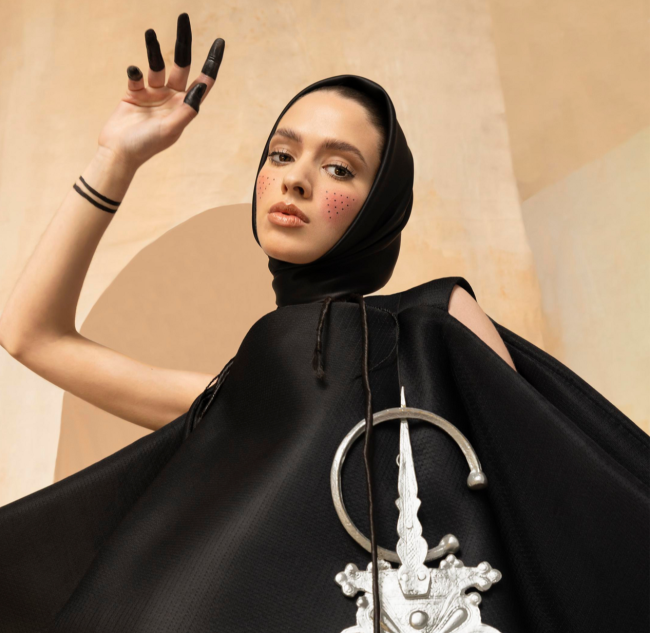
For the next policy period, the aim is to include more Moroccan (online) participants in the different Dutch visitors’ programmes to build more in-depth relations. From the Moroccan side, there is a high demand for exchange with Dutch partners to increase innovative thinking and to share knowledge. Moroccan authorities and cultural actors have called for support in training cultural professionals, managers, and policymakers in public administration and civil society. This can be achieved by intensifying contacts with both official cultural actors, such as ministries, and independent cultural institutions and foundations (e.g., Fondation des Musées, Fondation de la Mosquée Hassan II, Federation des Industries Culturelles et Creatives).
At the same time, Morocco has lots to offer to the Dutch cultural sector as well. Dutch cultural organisations and artists can broaden their cultural scope, finding inspiration and discovering new techniques in Moroccan culture. There will be opportunities for Dutch cultural organisations to become more visible in the coming years as well. There will be a call for proposals for Dutch cultural organisations willing to partner with Moroccan organisations. Other options are to participate in EU events such as the European Film Days, by screening Dutch films in (Moroccan) festivals such as Jazz au Chellah festival or Visa 4 Music, by sponsoring Dutch artists. In this way, authorities, organisations, artists and audiences from both countries can contribute to building more equal relations, which in turn will contribute to strengthening bilateral relations and sustainable dialogue.
Cultural Organisations in Morocco and the Netherlands
Information & Advice
Feel free to contact our Morocco advisor if you have any questions.

